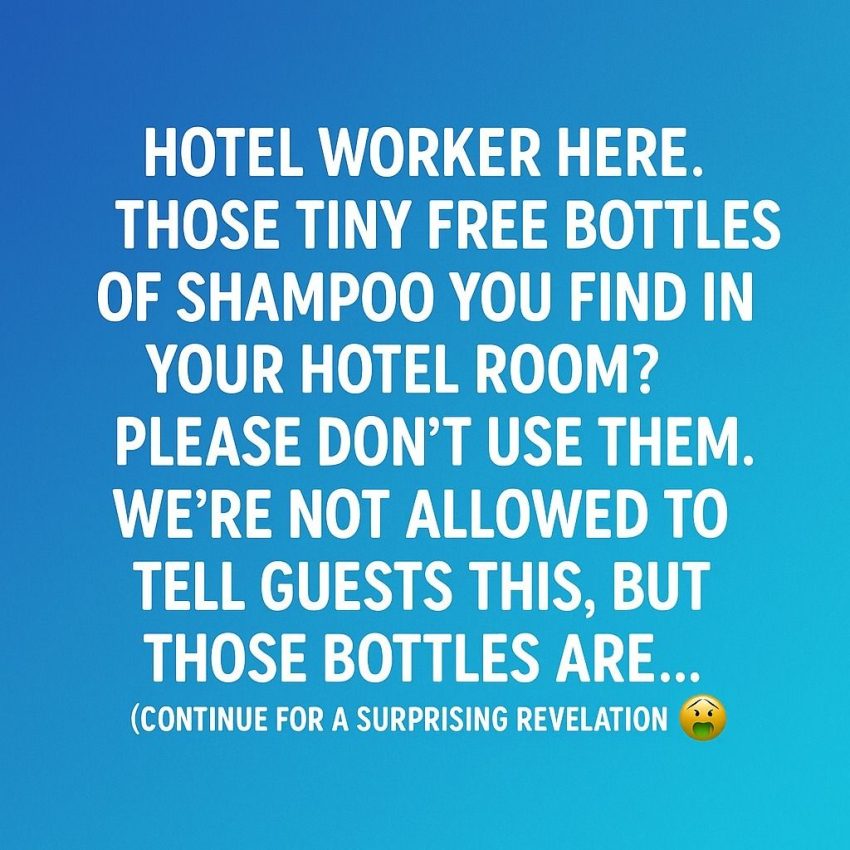People who stayed at the hotel I worked at often asked me about the small bottles of shampoo, conditioner, and lotion in the bathrooms. Some people wanted to take them home. Some individuals wanted to know if we tossed them away or refilled them after each stay. I always smiled when I saw these objects since they looked so small and meaningless at first. But in actuality, they meant a lot more than most people thought.
At first, when I worked at the front desk, I thought like most customers that the bottles were just things that people used once and then threw away. But after spending more time with the housekeeping workers and the management, I saw how well-planned and organized the process really was. Hotels acquire thousands of these little things every month, especially big ones with a lot of guests. It would be terribly wasteful and expensive to throw them all away after every checkout. That’s why most hotels have rigorous policies to keep garbage to a minimum.

If the bottle was still sealed—and certainly, cleaning staff are educated to search for evidence of tampering or use—it would usually go back into the amenity stock to be used in another room. Of course, it would have been thrown away for health reasons if it had been opened or used in part. But the ones that were left alone were rarely wasted.
What happened to the extras was even more critical. Our hotel was part of a program that collected and gave away all the toiletries that customers didn’t use or open to shelters and outreach groups in the region. We didn’t just do it every now and then. It was simply another day at the hotel. Every few weeks, the cleaning supervisor would pick up the additional things, and then a few of us would sort and box them. It might seem boring, but we thought we were doing something essential.
I remember one day in the winter quite well. After a conference, a lot of people checked out early, and housekeeping came back with crates full of shampoo bottles, soap bars, and travel-sized lotions that no one had used. We spent a few hours putting them into groups and checking that all the packaging was still there. After that, we put them in a staff member’s car. They were on their way to a women’s refuge nearby. Maria, one of the housekeepers who had worked at the hotel for more than 10 years, looked at the boxes and said, “This will make some people feel human again.” That line remained with me.
People who are staying in hotels might not even think about those little bottles, yet they can be helpful. A bottle of shampoo might make someone who lives in a shelter and hasn’t had access to clean things in days or weeks feel better about themselves. I heard stories from the groups we worked with about ladies getting ready for job interviews, kids who had never had their own bubble bath before, and families who were finally able to unpack a few items and feel at home after living in temporary housing.
I started to look at the bottles in a different way. Instead of thinking of them as free goods, I started to think of them as gifts. That helped me realize that being hospitable isn’t only about having clean towels and great check-ins. We take care of people even when no one is watching. We care about more than simply our guests; we also care about the people that live in the area.
Of course, guests are always invited to use the amenities while they are there. That’s why they are there. And yes, most hotels will let you take a couple shampoos home with you. But it’s quietly powerful to know that that little, untouched bottle could help someone who is in a lot worse situation than your weekend trip.
I learned a lot about people, as well as logistics, patience, and customer service, while working in a hotel. I learned that little things may be nice. A towel that is folded is one example. A nice “good morning.” A shelter was getting a paper bag with a bottle of conditioner in it. People don’t pay much attention to these minor, almost invisible actions, but they do matter.
In the end, it reminded me that excellent hospitality isn’t just about making people feel welcome or making things simpler. It’s all about understanding. And a lot of the time, the things we throw away or don’t notice are the most important.
